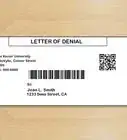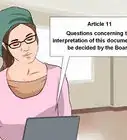Explore this Article
Co-authored by
Christopher Taylor, PhD
X
This article was co-authored by Christopher Taylor, PhD. Christopher Taylor is an Adjunct Assistant Professor of English at Austin Community College in Texas. He received his PhD in English Literature and Medieval Studies from the University of Texas at Austin in 2014.
This article has been viewed 6,568 times.
You may have heard “justice is blind” in a conversation or on TV and wondered what exactly it means. Phrases related to the law can be pretty confusing, especially because they can be full of historical references. In this article, we break down the definition, origin, and how to use “justice is blind” so you’re ready the next time you hear this tricky phrase.
Steps
Section 1 of 3:
What does “justice is blind” mean?
-
“Justice is blind” means the legal system is objective and unbiased. This saying is usually used when talking about a legal court. It refers to the way judges, juries, and law enforcement are supposed to fairly make decisions based only on the information presented to them, rather than based on personal experiences, or who they like most.[1] X Research source
Advertisement
Section 2 of 3:
Origin of “Justice is Blind”
-
The phrase “justice is blind” alludes to Lady Justice. Wearing a blindfold, and often shown in courthouse paintings or as a statue, Lady Justice is a symbol of the legal system. She’s based on the Greek goddess Themis and the Roman goddess Justitia who are known for their good judgment and righteousness, respectively. She acts as a reminder that the courts are supposed to protect the rights of the people without being influenced by outside factors.[2] X Research source
Section 3 of 3:
How to Use “Justice is Blind”
-
1Use “justice is blind” in a legal context. The most common situation you can use this phrase in is when you’re talking about court hearings, or legal proceedings. The legal system seeks to be impartial, but some people think there are ways to evade an honest trial. Use “justice is blind" as a reminder that lawyers, juries, and judges seek justice by looking only at the evidence.
- Your friend: “John Doe is super rich and famous. No way they put him in jail.”
- You: “It doesn’t matter. Justice is blind. If the evidence says he’s guilty, he’ll do the time.”
-
2Use “justice is blind” to hold someone accountable. You can use this phrase outside of a legal setting as well. If you know someone who is unafraid of consequences in general because they think their friends, money, or who they are will get them out of it, you can say “justice is blind” to remind them that doing the wrong thing has consequences no matter what.
- Your friend: “My dad’s friends with the sheriff, so it doesn’t matter that I shoplifted the t-shirt.”
- You: “Justice is blind. The sheriff isn’t going to care that she knows your dad when she finds out you stole something.”
-
3Use “justice is blind” sarcastically. You can use this phrase sarcastically to comment on the tolerance or ignorance of abuse of the law by the legal system. If you see someone treated unfairly by the judicial system because of their personal identity or bias of any kind, you might say “Oh, yes. Justice is so blind.”[3] X Research source
Advertisement
You Might Also Like
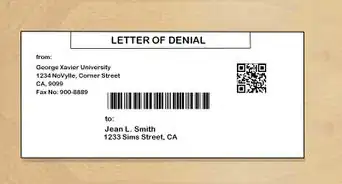
How to
Sue a School
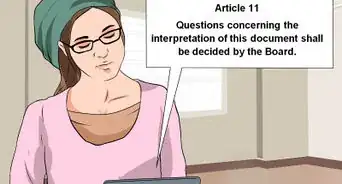
How to
Write a Constitution

How to
Find a Missing Person

How to
Report a Missing Person in the U.S
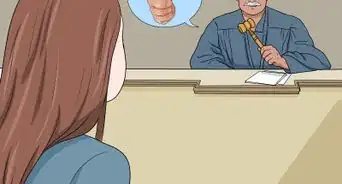
How to
Obtain CPS Records

How to
Find Someone
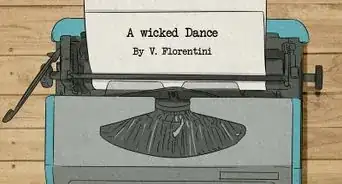
How to
Register and Legally Use a Pen Name
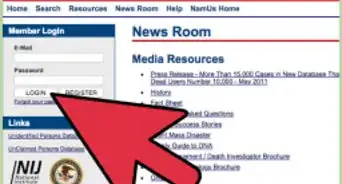
How to
Find Lost or Missing Relatives Online
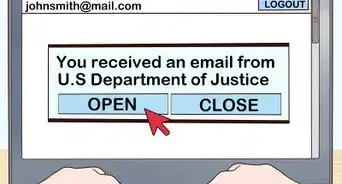 How to Ask For Your FBI File
How to Ask For Your FBI File
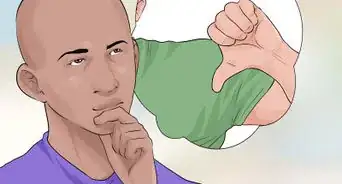
How to
Avoid a Draft
 How to Countersue
How to Countersue

How to
Sue a Judge
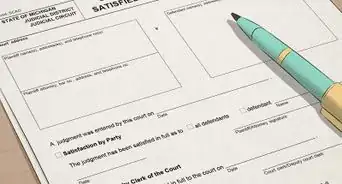
How to
Look Up Judgements Against You

How to
Find a Lost Friend
Advertisement
References
About This Article

Co-authored by:
Christopher Taylor, PhD
English Professor
This article was co-authored by Christopher Taylor, PhD. Christopher Taylor is an Adjunct Assistant Professor of English at Austin Community College in Texas. He received his PhD in English Literature and Medieval Studies from the University of Texas at Austin in 2014. This article has been viewed 6,568 times.
2 votes - 100%
Co-authors: 4
Updated: August 8, 2022
Views: 6,568
Categories: Legal Matters
Advertisement











